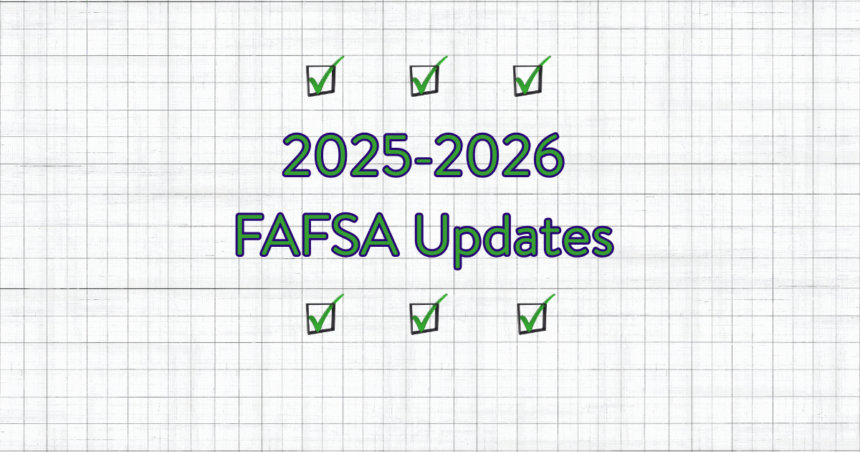FAFSA Changes: What to Know for 2025 and 2026

Keeping up with FAFSA changes can be a challenge. Along with this update, familiarize yourself with the major FAFSA revisions put in place for 2024 to 2025 as well.
What’s staying the same?
- The core changes introduced in 2024–25—the shorter form, Student Aid Index (SAI), required IRS Direct Data Exchange (DDX), expanded Pell eligibility, contributor rules, and inclusion of small business/farm assets—remain in force for 2025–26. (CollegeData, Investopedia)
- There are no significant structural changes—this version builds on last year’s overhaul.
Timeline & Launch Updates
- A limited beta version of the 2025–26 FAFSA went live on October 1, 2024 for testing. Full public access opened on December 1, 2024. (Chase)
- Applicants should note the federal deadline: June 30, 2026, by 11:59 pm CT. State and college deadlines may be earlier. (studentaid.gov)
What’s New?
1. “Who’s My FAFSA Parent?” Tool
- A new online wizard helps dependent students determine which parent(s) must register as contributors. (Financial Aid Toolkit)
2. Label Update: Homelessness
- The field formerly labeled “Student Other Circumstances” is now “Student Homelessness”, to clarify options for unsheltered students. (Financial Aid Toolkit)
3. Unsubsidized Loan Warning Popup
- If a student indicates that they only want a Direct Unsubsidized Loan, the form now presents a confirmation window warning that they will not be eligible for most other types of federal aid. (Financial Aid Toolkit)
4. IRS Matching Confirmation
- After attempting IRS data retrieval, applicants view a confirmation page that indicates whether the match was successful or unsuccessful before proceeding. (CollegeData)
5. Support Improvements
- The Department expanded the FSA helpline capacity (adding ~700 agents) and enhanced error‑flagging (e.g., missing signatures) to reduce delays. (Invest529)
6. Tax‑Identity Thefts
- If an applicant is a victim of IRS tax‑related identity theft, they now must submit a signed 2023 tax return and documentation (e.g., IRS letter or victim statement) instead of using the IRS DDX. (Chase
There’s no new overhaul in 2025–26: The FAFSA you saw in 2024–25 remains largely unchanged. However, added tools and support features aim to make the application process smoother.


